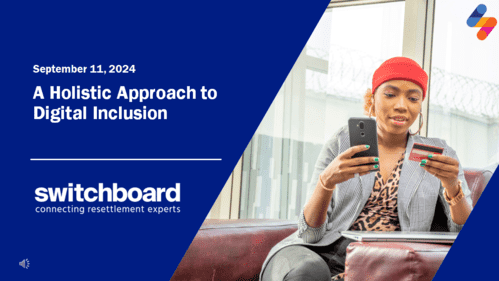Hosted on September 17, 2024, the training was delivered by Caroline Dilts, LICSW, Refugee Program Manager at the Research Program for Children and Adversity at the Boston College School of Social Work; Saida Abdi, PhD, LICSW, assistant professor in the School of Social Work in the College of Education and Human Development at the University of Minnesota; and, Farhad Sharifi, MSW, recent Afghan evacuee and was initially at Camp Atterbury.
Adjusting to caregiving norms in American culture during resettlement can be daunting for newcomer families. Many children and caregivers may experience culturally-specific stigma and discomfort around sensitive topics, making certain “difficult conversations”—about mental health, puberty, substance use, discrimination, and other issues—even more stressful. Regardless of their cultural background, caregivers often encounter tough questions from their children that they may not know how to answer immediately. For newcomer caregivers, specifically, children may ask tough questions like, “Why am I treated differently here?” or, “Why did we leave our country?”. The American Psychological Association suggests that when caregivers address difficult topics proactively and in age-appropriate language, their children feel safer and more secure. This webinar aims to educate providers on best practices in addressing these concerns with resettled caregivers and coaching them through initiating, responding to, and holding space for difficult conversations.
By the end of this webinar, you will be able to:
– Define stigma and describe how it may impact the way caregivers from different backgrounds communicate with their children
– Identify three difficult conversation topics that may be especially challenging to navigate for newcomer families
– Explain why it is important for caregivers to have difficult conversations with their children
– Apply three techniques to assist resettled caregivers in preparing for difficult conversations with their children







